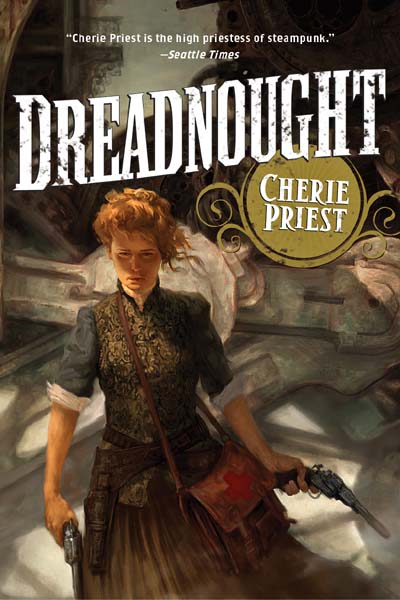2011 Reading Census
/ This year has been an interesting reading year for me, fluctuating between a bunch of really, really good books, and a couple that really sucked out any interest that I had in reading at that time, with a number of books in-between that I thought were fun reads. Here's what I got through in 2011:
This year has been an interesting reading year for me, fluctuating between a bunch of really, really good books, and a couple that really sucked out any interest that I had in reading at that time, with a number of books in-between that I thought were fun reads. Here's what I got through in 2011:
1- Grey, Jon Armstrong (1-8) 2- The Dervish House, Ian McDonald (1-21) 3 - Hull Zero Three, Greg Bear (1-23) 4 - Hunger Games, Suzanne Clarke (2-1) 5 - The Lifecycle of Software Objects, Ted Chiang (2-4) 6 - At The Queen's Command, Michael A. Stackpole (2-19) 7 - Mossflower, Brian Jacques (2-20) 8 - Embedded, Dan Abnett (3-7) 9 - Kraken, China Mieville (3-9) 10 - Leviathan Wakes, James A Corey (3-17) 11 - Little Fuzzy, H Beam Piper (3-28) 12 - Fahrenheit 451 Graphic Novel, Ray Bradbury (4-13) 13 - Yarn, Jon Armstrong (4-13) 14 - Welcome to the Greenhouse, Gordon Van Gelder (4-19) 15 - Fuzzy Nation, John Scalzi (4-25) 16 - Spectyr, Philippa Ballentine (4-26) 17 - Soft Apocalypse, Will McIntosh (4-27) 18 - Blackout, Connie Willis (4-30) 19 - Locke & Key, Joe Hill (5-8) 20 - Catching Fire, Suzanne Collins, (5-22) 21 - Deathless, Catherynne Valente (5-27) 22 - Embassytown, China Mieville (6-18) 23 - Hex, Allen M. Steele (7-2) 24 - The Gravity Pilot, MM Buckner (7-4) 25 - A Game of Thrones, George R. R. Martin (7-15) 26 - The Big Roads, Earl Swift (7-19) 27 - Spellbound, Blake Charlton (8-2) 28 - The Magician King, Lev Grossman (8-4) 29 - Bright's Passage, Josh Ritter (8-5) 30 - Grave Peril, Jim Butcher (8-13) 31 - Spook Country, William Gibson (9-6) 32 - Machine Man, Max Barry (9-10) 33 - Crisis in Zefra, Karl Schroeder (9-15) 34 - Halo: The Fall Of Reach, Eric Nylund (10-1) 35 - Germline, TC McCarty (10-5) 36 - The Windup Girl, Paolo Bacigalupi (10-16) Audio 37 - Halo: Glasslands, Karen Traviss (10-29) 38 - Red Herring, Archer Mayor (10-20) 39 - Ganymede, Cherie Priest (11-11) 40 - Ender's Game, Orson Scott Card (11-20) 41 - Ready Player One, Ernie Cline (11-26) 42 - Open Season, Archer Mayor (12-5) 43 - Seed, Rob Zeigler (12-11) 44 - Rule 34, Charles Stross (12-??)
In the pipeline: X-Wing: Rogue Squadron, by Michael A. Stackpole, All You Need Is Kill by Hiroshi Sakurazaka, Learning to Eat Soup with a Knife: Counterinsurgency Lessons from Malaya and Vietnam by John A. Nagl and The Unforgiving Minute: A Soldier's Education by Craig M. Mullaney. Rogue Squadron is something I'm going to finish up sometime this weekend, and All You Need is Kill is somewhere behind that. The other two are a bit denser, and while they're interesting, they're taxing to get through.
Interestingly, this was the first year where I really read books electronically. I've dabbled with it in the past, ever since I bought an iPad, but this year, I made the jump and read a small percentage digitally: 7 in all: Grey, Lifecycle of Software Objects, Embedded, Little Fuzzy, Crisis in Zephra, Ender's Game and Open Season. Add in Game of Thrones, with which I alternated between my paperback and ecopy, and that's 19%, or just under a fifth of my book pile existed on a hard drive somewhere, rather than a bookshelf.
An interesting thing about eBooks: there's really only a single novel that I read in which I felt really took advantage of the book’s digital nature: Crisis at Zephra. This novel, a short novella, really, was published by the Canadian Military, and incorporated a lot of data about new and upcoming technologies, and trends in said technology. I was limited in that I was reading on a wifi only iPad when I was away from the internet, which left me unable to click on the links scattered throughout the text, with explanations as to what the terms, technology and theory meant. This, I think, is where eBooks will eventually head: less reading experiences, and more immersive and interactive ones.
I've also been doing a bit more with book reviews, on a number of different sites: SF Signal, The Functional Nerds, Kirkus Reviews, and my own blog, with a total of 15 books (34%) read for a review. In this instance, I've written reviews for a number, but these are books that were given to me by either the website that I wrote the review for, or sent by an author or publicist for my own purposes, even if a review wasn't necessarily expected or promised. Just under a full third of my reading this year was subsidized by someone else, for review purposes. Of those books, I had a bit of fun, although my reviews weren't universally positive. The caveat to this, of course, is that a majority of my reading, (29 books in all - 65%) are for my own pleasure, and a minor attempt to whittle down my own to-read list. I've got a feeling that I'll never destroy the growing pile.
I've always described myself as a science fiction fan, rather than a fantasy one, and in years past, I've typically read more fantasy than science fiction. This year? I read 27 Science Fiction books (61%), 11 fantasy books (25%), 2 mystery novels (4.5%), 2 YA novels (4.5%), and 1 each of history and steampunk (2%). This year was certainly more science fictional than years past, which I'm happy about.
Interestingly, while I describe this year as being up and down, when looking over the list as a whole, there's only four books that I really didn't like. I thought just under half (20) were good, while just under a quarter (10%), were okay - decent, but nothing that really wowed me. 10 books in all really blew me away (22%). Of the books that I read this year, the more memorable were the really great ones, and of those, three really stood out for me: The Magician King, by Lev Grossman, Soft Apocalypse, by Will McIntosh, and The Dervish House, by Ian MacDonald. (See my top 10 list for the full number of ones that impressed me this year.) These books are astonishing reads, and I really hope that we'll see The Magician King and Soft Apocalypse get the attention they deserve: Grossman has gained a considerable amount of acclaim, but McIntosh's first novel feels like it's under the radar a bit, the underdog of the year. If you haven't read it: I can't recommend it highly enough. The Dervish House was nominated for a Hugo, but somehow ended up at the bottom of the polls. Still, it's nice to see it nominated.
Of the really bad books, these all stand out as ones that I had the most trouble getting through: Seed, by Rob Zeigler, The Gravity Pilot by M.M. Buckner, Deathless, by Catherynne Valente and Hex, by Allen M. Steele. I believe that the reason why they stand out so much is because they were all books that I had high hopes for: Seed was lauded as the successor to Paolo Bacigalupi's The Windup Girl, and utterly failed at that, The Gravity Pilot looked interesting, and didn't work, Deathless was wonderfully written, but was a book that I simply couldn't get into, and Hex was part of Steele's Coyote universe, which started off so well, and has fallen so far with this book. There were some others, like Jack Campbell's Beyond the Frontier: Dreadnaught, which was so abysmally written that I couldn't even get through the first chapter, and Sarah Hall's Daughters of the North that I had a lot of trouble getting into and didn't finish.
Everything else in the middle was entertaining, and some excellent novels: Susanne Collins' Hunger Games was an excellent read, although the sequel was a bit too much of the same for my liking. I haven't reached #3, Mockingjay, and I'm awaiting that one's release in paperback. China Mieville's Embassytown was interesting, a little flawed, but brilliant all the same, although I have to say that I liked Kraken quite a bit more. Leviathan Wakes was a lot of fun to read, and a promising start to a new series, while John Scalzi's Fuzzy Nation was something I tore through in just a couple of hours on a plane. I finally got in on A Game of Thrones, and it lives up to the hype, somewhat. I even broke out of the SF/F genres, and picked up the fantastic The Big Roads, by Earl Swift, which was a fascinating look at the construction of roadways in the US. Karen Traviss's entry into the Halo universe was also a fantastic one, and it's dragged me in to that particular expanded world, as I picked up several other Halo novels, which will likely get read next time I'm on a Halo kick. I re-read Mossflower after Brian Jaqcues passed away, as well as Ender's Game, and found both books really lived up to my memories of them. Ernie Cline's Reader Player One was a fun, entertaining book, but it was lacking in other departments. Finally, I had a chance to go back and revisit Paolo Bacigalupi's The Windup Girl, which lives up to my first impressions wonderfully.
So, why quantify my enjoyment? I've generally been accused from people of taking things like this too seriously, in reviewing films or books that should be 'just for fun'. I've never subscribed to the ‘turn your brain off while you read/watch/listen’ train of thought, because I think that does a disservice to the author. Certainly, there's books or films that I've done that with, enjoying them because they were written to be enjoyed. But, distilling a year's worth of reading down into some easy statistics?
A couple of reasons: one, it helps me better understand my own interests by grounding them in reality. As mentioned, I firmly describe myself in the science fiction camp, but over the past couple of years, I've generally been surprised when I've read more fantasy than science fiction. My interests are all over the place, and I don't generally remember at a glance what I've read as a whole. I was a little surprised that I hadn't finished more than a single history book this year, despite the intense work that I did on various history projects: I've read portions of numerous historical texts, mainly about World War II and military history (including a couple that are still technically on the reading list), but never finished them, or needed to finish them. This might also be me forgetting to stick a book onto the 'Read' List.
Reading is an important part of what I do. I typically read at night, before I go to bed (increasingly, if I'm using my iPad, or at the beginning of the day, when I can get through 10-15 pages while I'm waiting for my computer to load up at work. Weekends usually mean a lot of time to blow through something, and when I was on public transportation for two trips earlier this year to Washington D.C. and Belgium, I read a lot: three books for each trip (for the DC trip, that was one book for the airplane, one for the second day on the train, and the third for the flight home, all in a couple of days.) Better understanding my own reading habits help me to read more, I think, and while it's not quantity over quality, I've got a massive backlog of books that I've bought. Looking over my list from this year, I had a total of 6 books - 13%! - came off of that list, which currently numbers around 100. These are all books that I've owned for more than a year, while a huge number of books that I picked up this year were released this year, and this also comes as a bit of a surprise.
My thoughts going into 2012 is that I’ll be whittling down the to-read list. There’s a lot of books that I do want to get to in the near future. Off the top of my head, I can think of a number that are edging up the list: George R.R. Martin's second entry in the Song of Ice and Fire, Clash of Kings is most certainly going to make it onto the list when the next season hits, the entire X-Wing series by Michael Stackpole and Aaron Allston will get re-read prior to the next novel in the series, Mercy Kill. I also want to revisit Timothy Zahn’s Icarus Hunt. I've also been wanting to begin David Louis Edelman's Infoquake, finish out William Gibson's Bigend trilogy with Zero History and get into Neal Stephenson, Iain M. Banks, and generally blow through a bunch of paperbacks and history books that I've had for a couple of years. Hopefully, I'll be able to get through a portion of that, and hopefully, I'll slow down the growth of my own library - we're running out of shelf space (again).
It’s been a fun year, with a lot of good stories all around. It looks like 2012 will be just as much fun.

 It's been a while since I've stepped back and taken stock of what I've been reading, and with the end of the year rapidly approaching, there's a whole handful of books that I'm currently in the middle of or about to start up. Hopefully, I'll get through this short list by the end of the year, and begin building a list of anticipated books for 2012. (Although, like last year's list, it was only somewhat helpful.)
It's been a while since I've stepped back and taken stock of what I've been reading, and with the end of the year rapidly approaching, there's a whole handful of books that I'm currently in the middle of or about to start up. Hopefully, I'll get through this short list by the end of the year, and begin building a list of anticipated books for 2012. (Although, like last year's list, it was only somewhat helpful.)
 It’s hard to mention the term Steampunk without also mentioning Cherie Priest’s Clockwork Century series, an alternate history of the United States, featuring all of the bells and whistles that comes with the territory. The first novel, Boneshaker, was well received, as was the short novella, Clementine, set shortly after the events of the first book, while the latest entry in the series (there are two more planned), Dreadnought, picks up the story across the country and helps to flesh out Priest’s strange alternate world. An interesting follow-up to Boneshaker, Dreadnought never quite reaches the same heights that its predecessor reached, nor does it quite feel as unique. As such, Priest brings out new elements to the Civil War only hinted at in the previous books, and tells a fun story, one that is sure to be popular with the steampunk crowd.
It’s hard to mention the term Steampunk without also mentioning Cherie Priest’s Clockwork Century series, an alternate history of the United States, featuring all of the bells and whistles that comes with the territory. The first novel, Boneshaker, was well received, as was the short novella, Clementine, set shortly after the events of the first book, while the latest entry in the series (there are two more planned), Dreadnought, picks up the story across the country and helps to flesh out Priest’s strange alternate world. An interesting follow-up to Boneshaker, Dreadnought never quite reaches the same heights that its predecessor reached, nor does it quite feel as unique. As such, Priest brings out new elements to the Civil War only hinted at in the previous books, and tells a fun story, one that is sure to be popular with the steampunk crowd.

 This past weekend was the Wizard World Boston comic convention, held at the Hynes Convention Center in downtown Boston, something that the New England Garrison has been planning for almost a year now. This has been quite the year for conventions for the group. We were at the Boston and Granite City Comic Cons earlier this year, then Celebration 5, and now this one, with SupermegaFest coming up.
This past weekend was the Wizard World Boston comic convention, held at the Hynes Convention Center in downtown Boston, something that the New England Garrison has been planning for almost a year now. This has been quite the year for conventions for the group. We were at the Boston and Granite City Comic Cons earlier this year, then Celebration 5, and now this one, with SupermegaFest coming up.



